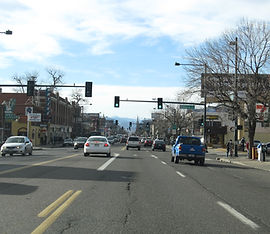
Research
Research
Interests
I believe urban planning does not end with a plan. It only begins there.
Broadly, I study how communities engage, contest, and repurpose urban plans and policies, and the resultant composition of cities, regions, and territories. I draw on mixed-methods research, institutional analysis, urban planning history and theory, and planning law. My research lies at the intersection of public policy, democracy, and equitable urban development, focusing on the everyday local state through on-the-ground institutions of urban planning. Geographically, I focus on post-apartheid South Africa and the United States.
A primary strand of research explores demands for "equitable development" in the United States and specifically Denver, CO. I investigate equitable-development opportunities and imperatives in Denver through examination of historical and contemporary housing, land use, and transportation planning projects, and the links between them. I am currently working on research projects related to urban planning processes and outcomes along Denver's East Colfax Bus Rapid Transit (BRT) corridor and policy drivers of housing production in the City and County of Denver, among other projects.
An active, second strand of research considers resident tactics of bottom-up accommodation, negotiation, and resistance to apartheid-era spatial planning practice in the post-apartheid era. My dissertation examined one former South African "Bantustan" capital city, a non-white receiving site of widespread forced relocation, Mmabatho and today Mahikeng, North West, South Africa. My Columbia University dissertation, available to read and engage in Columbia Academic Commons here, considered specific tactics of repurposing in Mahikeng. In Mahikeng, residents have repurposed top-down technocratic planning premises with an array of multi-actor amalgams, creative assemblages, and heterogeneous spatial forms. Residents respond to public architecture and planning with amalgams that remain subject to contestation, disruption, repurposing, and innovation. I believe that this type of resident repurposing is a glimpse into grassroots popular democracy. From my research, a general lesson applicable to the field of urban planning and processes of urbanization emerges: planning does not end with the plan; it merely begins with the plan. To engage such processes, I draw on institutional analysis and mixed methods including archival research, semi-structured interviews, and a close analytic readings of built sites. I find that Residents' responses to public architecture and planning themselves remain subject to contestation, disruption, repurposing, and innovation. These responses of repurposing stem from healing, but also for both universal and contextually specific demands for human dignity, economic equality, and social justice.
Broadly, my research considers the ways in which land, law, and property condition urban planning, and how planning is embedded, historicized, and institutionalized within specific community contexts, power relations, and socioeconomic struggles.




